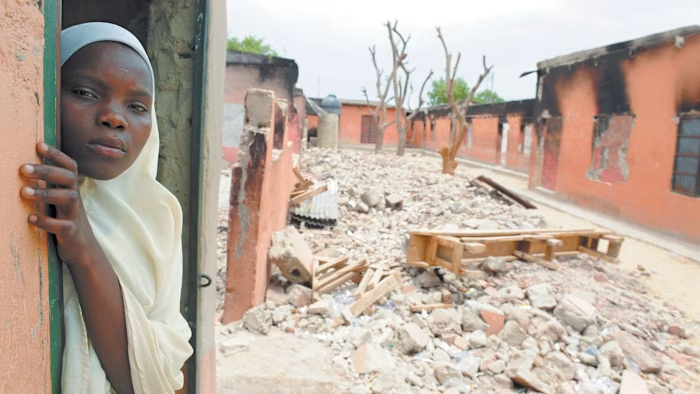


Dark Mode
Turn on the Lights

For over three decades, Atiku Abubakar has remained a towering figure in Nigerian politics, perpetually at the cusp of the presidency, but never quite reaching it. Though admired for his resilience and deep political networks, his journey has increasingly come to symbolize poor timing, inconsistent allegiances, and what many now consider a string of fatal […]

For over three decades, Atiku Abubakar has remained a towering figure in Nigerian politics, perpetually at the cusp of the presidency, but never quite reaching it. Though admired for his resilience and deep political networks, his journey has increasingly come to symbolize poor timing, inconsistent allegiances, and what many now consider a string of fatal political errors. Atiku’s story is not just that of a man chasing the presidency; it is the story of missed chances, costly detours, and the consequences of political zigzagging.
Atiku Abubakar was a founding father of the People’s Democratic Party (PDP), a dominant force in Nigeria’s Fourth Republic, and once hailed as Africa’s largest political movement, having vowed to rule Nigeria for 60 uninterrupted years. He served as vice president from 1999 to 2007 under President Olusegun Obasanjo, and played a critical role in the PDP’s early victories. But his relationship with the party has been anything but stable. After a bitter fallout with Obasanjo during their second term, largely over succession battles and allegations of corruption, Atiku left PDP to contest the 2007 elections under the Action Congress of Nigeria (ACN), finishing a distant third.
He returned to the PDP in 2010 but was soon disillusioned again. In 2014, amid a storm of internal disagreements, particularly over the re-election ambitions of President Goodluck Jonathan and the party’s perceived abandonment of its North-South zoning agreement, Atiku defected again, this time to the newly formed All Progressives Congress (APC). He was among the high-profile defectors who helped birth what would become the first opposition party in Nigeria’s history to defeat an incumbent.
Ironically, it was this move that many now believe cost Atiku his best shot at the presidency. Had he remained in PDP, he would likely have emerged as the northern consensus candidate in 2015. Instead, he helped build the platform that handed power to Muhammadu Buhari. Atiku returned to the PDP in 2017, launching another presidential bid in 2019 but was defeated by Buhari, and yet another defeat in 2023 by APC’s Bola Tinubu.
Despite the losses, Atiku appears undeterred. Though he has yet to formally declare his candidacy for 2027, his recent maneuvers suggest a familiar script. From renewed efforts to unify fragmented opposition parties, to quiet coalition-building among northern elites and former allies, Atiku seems to be laying the groundwork for what could be a sixth presidential run.
But with each new move, skepticism grows. Atiku’s brand has been worn down by repetition. The political landscape has shifted, with new powerbrokers like Peter Obi’s Labour Party, with young Nigerians hugely supporting him, and Rabiu Kwankwaso’s Kwankwasiyya movement in the North have emerged, drawing the energy of younger voters and eroding the PDP’s former strongholds and base. Meanwhile, the ruling APC remains entrenched, gaining new grounds, accepting high-profile defections, and the PDP itself is still fractured from Atiku’s 2023 candidacy, which some members saw as a betrayal of the party’s zoning principles.
Atiku’s story, when viewed in hindsight, is a masterclass in how political misjudgment can sabotage even the most formidable ambitions. He has consistently found himself in pivotal positions at the wrong moments or worse, made the wrong choices when the stakes were highest.
His departure from PDP in 2014 fractured the party and handed the APC a winning coalition. His return to PDP came too late to rebuild internal trust or reclaim lost ground. In 2023, his insistence on contesting, despite popular calls for the ticket to be zoned to the South, created rifts that never healed. Key figures like Rivers State governor and now minister of Federal Capital Territory, Nyesom Wike, rebelled, created the G-5, who worked hard for President Bola Tinubu in the 2023 elections, deepened internal divisions, and weakened the PDP’s ability to run a united campaign.
Had Atiku simply stayed the course in 2015, he might be president today. Instead, his repeated party switches, opportunistic alliances, and underestimation of grassroots sentiment have kept him one step behind destiny.
It is difficult to overstate Atiku’s influence on Nigerian politics. His longevity, financial clout, and deep networks make him a heavyweight. He has helped shape every major political coalition since 1999. Yet his legacy increasingly looks like that of a man who stood in his way, again and again.
In many ways, his story mirrors that of the PDP: a once-mighty institution brought low by internal contradictions, leadership struggles, and failure to adapt. Like PDP, Atiku seems trapped in the past, relying on strategies and calculations that no longer hold the same power in a country with a rising youth population and increasing political disillusionment.
As murmurs of a 2027 bid grow louder, many Nigerians are asking the same question: is Atiku’s ambition a sign of enduring relevance, or simply the refusal to accept political mortality? Will he learn from the past, or once again take the wrong turn at the worst possible moment?
Whatever the answer, one thing is clear: if 2027 is indeed Atiku’s final run, it must be more than just another campaign. It must be a reckoning.
And perhaps, redemption.
